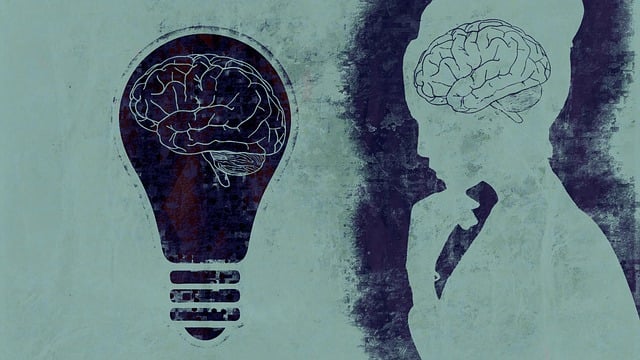Mental health professionals at Lafayette Sexual Abuse Survivor Therapy (LSASAT) face unique challenges treating trauma survivors with complex needs, requiring specialized techniques and cultural sensitivity. They operate within strict ethical and legal guidelines for confidential sexual abuse cases, balancing client privacy with reporting duties. LSASAT prioritizes safe therapy spaces through robust safety protocols, self-care practices, and cultural competency training. Effective risk management, including evidence-based coping mechanisms, enhances emotional well-being and long-term recovery for clients. Continuous learning and peer support networks ensure professionals at LSASAT maintain high standards of care.
In the sensitive field of mental health, risk assessment is paramount, especially when treating sexual abuse survivors. This article explores the unique challenges faced by professionals in Lafayette Sexual Abuse Survivor Therapy, delving into ethical considerations and legal implications. We discuss strategies for creating safe spaces, identifying hazards, and implementing safety protocols. Additionally, continuous training and support systems are highlighted as essential components for professional resilience. By understanding these risks, mental health practitioners can better navigate complex scenarios and provide effective care.
- Understanding the Unique Risks in Lafayette Sexual Abuse Survivor Therapy
- Ethical Considerations and Legal Implications for Mental Health Professionals
- Creating a Safe Space: Establishing Boundaries and Safety Protocols
- Identifying and Mitigating Potential Hazards in Treatment
- Continuous Training and Support Systems for Professional Resilience
Understanding the Unique Risks in Lafayette Sexual Abuse Survivor Therapy

Mental health professionals working with Lafayette Sexual Abuse Survivor Therapy face unique challenges due to the sensitive nature of their work. Survivors often carry deep-seated trauma, anxiety, and low self-esteem, which can be triggered during therapy sessions. The process of confronting and healing from sexual abuse is intricate and requires a high level of sensitivity and expertise.
Professionals in this field must employ specific techniques to promote emotional well-being and help clients manage their symptoms effectively. By understanding the complexities of trauma and its impact on individuals, therapists can offer tailored support, including strategies for anxiety relief and self-esteem improvement. This specialized approach is essential to ensure a safe and supportive environment for survivors as they navigate their journey towards healing.
Ethical Considerations and Legal Implications for Mental Health Professionals

Mental health professionals are bound by a set of ethical guidelines and legal obligations that are crucial to maintaining trust with clients and ensuring safe practices. When dealing with sensitive issues like sexual abuse, therapists must prioritize client confidentiality while adhering to laws and regulations. For instance, in Lafayette Sexual Abuse Survivor Therapy, professionals have an ethical duty to report any suspected instances of abuse, even if it means breaking client-therapist privacy. This delicate balance requires a deep understanding of legal frameworks and the capacity to navigate complex ethical dilemmas.
Moreover, the profession demands a high level of cultural sensitivity in mental healthcare practice. Professionals should be attuned to diverse backgrounds and beliefs, fostering an inclusive environment that respects individual uniqueness. Developing inner strength through self-care practices such as Burnout Prevention is also vital. Mental health workers must cultivate resilience to navigate the emotional weight of their clients’ trauma while avoiding professional exhaustion, thereby ensuring sustained effectiveness in their work.
Creating a Safe Space: Establishing Boundaries and Safety Protocols

Creating a safe space is paramount for mental health professionals to foster effective therapy and nurture their clients’ emotional well-being, especially when working with vulnerable populations like Lafayette Sexual Abuse Survivor Therapy clients. This involves establishing clear boundaries and implementing robust safety protocols.
Professionals must prioritize self-care and cultivate compassion through practices like mindfulness and empathy training. By ensuring their own emotional resilience and cultural competency, they can create an environment that respects individual experiences and needs. This includes understanding the impact of trauma and incorporating evidence-based techniques, such as Compassion Cultivation Practices, to promote healing. Additionally, maintaining open communication channels allows clients to express boundaries, fostering a sense of agency and trust. Healthcare Provider Cultural Competency Training plays a vital role in equipping professionals with the knowledge to navigate diverse cultural backgrounds, ensuring every client feels seen and heard.
Identifying and Mitigating Potential Hazards in Treatment

Identifying potential hazards in therapy is a cornerstone of effective risk assessment for mental health professionals, particularly when treating sensitive cases like Lafayette Sexual Abuse Survivor Therapy. Beyond ensuring physical safety, it’s crucial to recognize and address emotional and psychological risks unique to survivors. These may include triggering memories, intense emotions, and re-experiencing trauma during the therapeutic process.
Mindfulness Meditation, Stress Management, and Compassion Cultivation Practices can be powerful tools for mitigating these hazards. By incorporating evidence-based techniques, therapists can help clients develop coping mechanisms, regulate emotions, and foster a sense of safety in the therapy room. This proactive approach not only enhances the therapeutic experience but also strengthens the client’s ability to manage potential triggers outside of sessions, ultimately supporting long-term recovery.
Continuous Training and Support Systems for Professional Resilience

Mental health professionals face unique challenges that demand continuous learning and adaptive practices. To foster professional resilience in an often demanding field like Lafayette Sexual Abuse Survivor Therapy, ongoing training is essential. This includes specialized workshops on trauma-informed care, crisis intervention, and evidence-based therapeutic techniques tailored to diverse client populations. Such training equips professionals with the tools to navigate complex cases and maintain effective support systems for both themselves and their clients.
In addition to professional development, robust support networks are vital. This involves accessible peer supervision, mentorship programs, and collaborative clinical settings that encourage open dialogue and knowledge sharing. By prioritizing self-care practices within these structures, mental health professionals can mitigate burnout and enhance their ability to advocate for improved Mental Health Policy Analysis and Advocacy. Effective risk management planning, integrated with a culture of support, ensures professionals are equipped to handle challenges while maintaining the highest standards of care, ultimately benefiting clients such as those seeking therapy for sexual abuse in Lafayette.
Mental health professionals working with Lafayette Sexual Abuse Survivor Therapy face unique challenges that demand a comprehensive risk assessment approach. By understanding ethical implications, establishing clear boundaries, and prioritizing continuous training, practitioners can create a safe environment for both themselves and their clients. Identifying potential hazards and implementing effective mitigation strategies are crucial steps in ensuring resilience within the profession. This holistic approach not only protects professionals but also fosters a supportive ecosystem that enhances client outcomes in the sensitive field of sexual abuse therapy.










